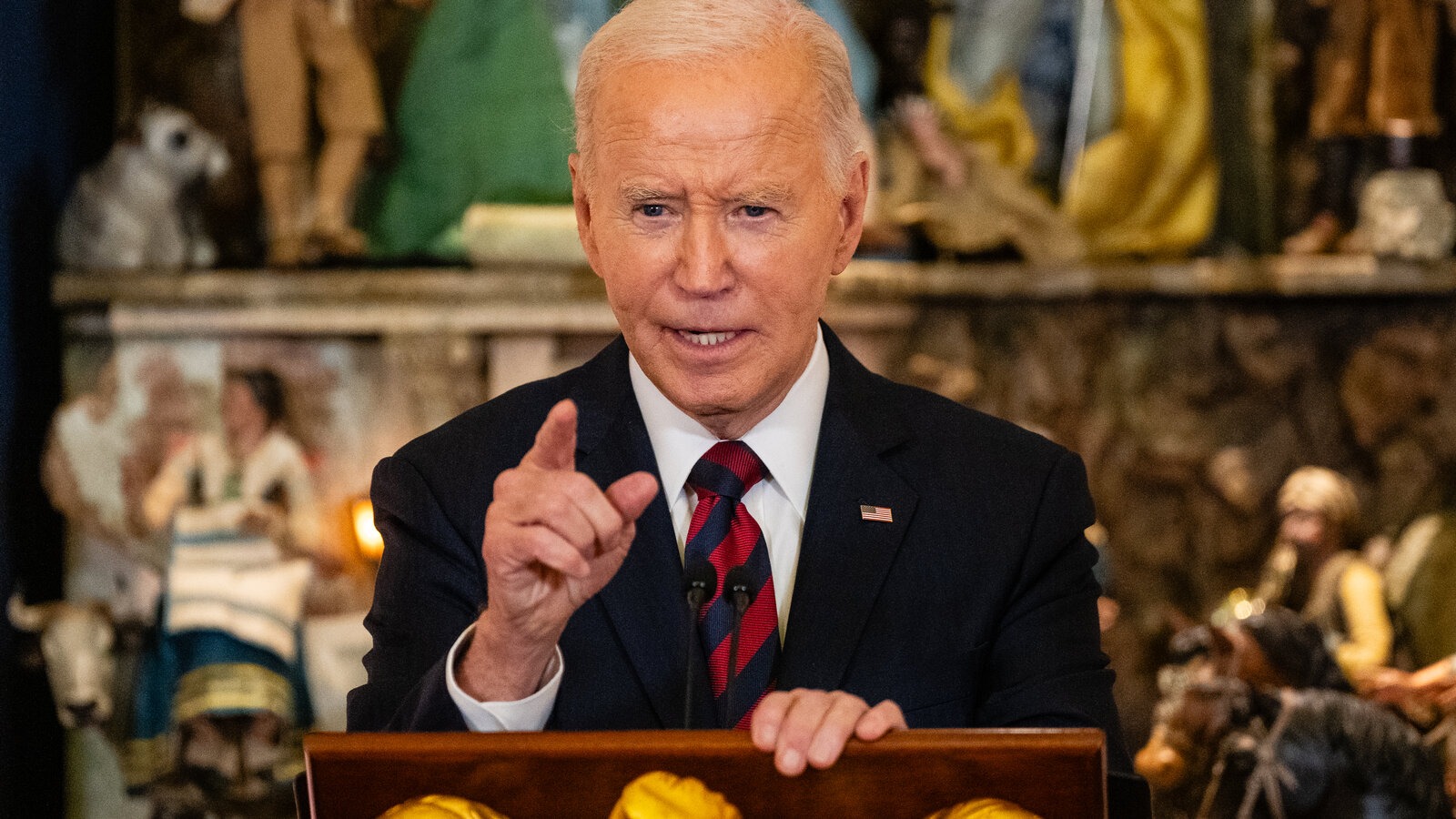
Biden Issues Veto Threat on Bill Expanding Federal Judiciary Amid Partisan Split
Introduction
On December 10, 2024, President Joe Biden issued a veto threat against the bipartisan JUDGES Act, which proposes the largest expansion of the U.S. federal judiciary since 1990. The bill, which aims to create 66 new federal district judgeships over the next decade, has sparked intense political debate. While supporters argue it will reduce the backlog of court cases, critics believe it grants the incoming Trump administration an outsized influence over judicial appointments.
The bill was passed unanimously by the Senate in August 2024, but it faced delays in the House until after the November 5 presidential election, in which Republican President-elect Donald Trump secured victory. The White House now claims that the timing of the bill is politically motivated.
This article provides a comprehensive analysis of the JUDGES Act, Biden’s veto threat, and its potential implications for the federal judiciary and American politics.
(Facebook: Like, X: Follow, Telegram: Join us)
What is the JUDGES Act?

The Judicial Understaffing Delays Getting Essential Services (JUDGES) Act is a landmark bill designed to expand the U.S. federal judiciary. If enacted, the bill would add 66 new federal district judgeships over the next 10 years. This would mark the first significant increase in the number of federal judges since 1990, when Congress last expanded the judiciary.
Why Does the U.S. Need More Judges?
Since 1990, the U.S. has experienced a 30% increase in federal court filings, but the number of judges has remained stagnant. This has led to significant backlogs, with some litigants waiting years to have their cases heard. The JUDGES Act aims to alleviate these delays by increasing judicial capacity.
Supporters of the bill argue that the growing population, increased litigation, and heightened demand for justice necessitate a larger judiciary. Proponents also highlight that delays in justice disproportionately affect low-income communities that rely on timely court rulings for civil, family, and immigration matters.
Biden’s Veto Threat: The Key Issues

President Biden’s decision to threaten a veto of the JUDGES Act has raised eyebrows, especially considering that the bill had bipartisan support earlier in the year. So, why the sudden shift?
1. Timing of the Bill’s Passage
One of the White House’s primary objections is the timing of the House’s decision to move the bill forward after the November 2024 election, which saw Republican President-elect Donald Trump secure victory. The administration criticized House Republicans for delaying the vote until after Trump’s win, arguing that the timing allows the new president to influence judicial appointments.
By vetoing the bill, Biden seeks to prevent President-elect Trump from appointing the majority of the new federal judgeships created under the JUDGES Act.
2. Political Strategy
Democratic lawmakers, including House Judiciary Committee Chair Jerrold Nadler, have accused Republicans of manipulating the judicial appointment process. Nadler, a longtime advocate for judicial expansion, withdrew his support for the bill, citing concerns that it would unfairly benefit Trump and allow him to shape the federal judiciary for generations.
The Democrats’ fear is rooted in past experiences, notably when Senate Republicans under Mitch McConnell blocked President Obama’s judicial appointments, only to fill them later under President Trump. By delaying the JUDGES Act vote until after the 2024 election, Republicans are perceived as attempting to repeat this strategy.
Political Reactions to Biden’s Veto Threat
The veto threat has created a partisan divide, with reactions from both parties reflecting broader tensions over control of the judiciary.
1. Democratic Perspective

Democratic lawmakers, particularly Representative Jerrold Nadler, have publicly supported Biden’s veto threat. Nadler, who played a key role in drafting the bill, argued that the initial plan was intended to ensure fair judicial appointments under any future administration. However, with Trump now set to take office, Democrats believe the political calculus has changed.
“We wanted this bill to be neutral and to ensure that any future president could make these appointments fairly. But now that we know Donald Trump will be in office, we have a responsibility to prevent him from reshaping the judiciary.” — Rep. Jerrold Nadler
By supporting Biden’s veto, Democrats hope to stall judicial appointments until after the 2024 election dust has settled, giving them leverage to negotiate more favorable terms.
2. Republican Perspective
Republican lawmakers argue that Biden’s veto threat is purely political. Senator Todd Young of Indiana, the lead sponsor of the JUDGES Act, said Biden’s opposition is harming ordinary Americans by blocking much-needed judicial capacity.
“The American people deserve timely access to justice. Every day that we delay this bill is another day that litigants are stuck in backlogged courts, waiting for their day in court.” — Sen. Todd Young
Republicans view Biden’s veto threat as a cynical attempt to limit Trump’s influence on the judiciary. They argue that Democrats supported the expansion of federal judgeships when they believed it would benefit them but changed their stance after the election.
What Happens if Biden Vetoes the JUDGES Act?
If Biden follows through with his veto, the bill will return to Congress. Overriding a presidential veto requires a two-thirds majority vote in both the House and Senate, which is unlikely given the current partisan divide.
If the veto stands, the opportunity to expand the judiciary could be delayed for years. The federal court system would continue to face case backlogs, and citizens seeking justice would likely experience longer wait times.
Additionally, the veto could become a campaign issue for 2025, with Republicans portraying Biden as obstructing justice for political gain. Conversely, Democrats could frame the veto as necessary to prevent Trump from controlling the judiciary.
Implications for the Federal Judiciary

The expansion of the federal judiciary has profound implications for the balance of power in the United States. Federal judges, once appointed, serve lifetime tenures, giving them enormous influence over civil rights, business regulation, immigration policy, and more.
If the JUDGES Act passes and Trump appoints the new judges, he could shift the ideological balance of the courts for decades. This is why control of judicial appointments has become a central battleground between Democrats and Republicans.
Judges play a vital role in upholding democracy, ensuring that laws are applied fairly and consistently. If the judiciary becomes heavily tilted in favor of one political ideology, it could lead to perceptions of bias and undermine public trust in the court system.
Public Reactions

The public reaction to Biden’s veto threat has been mixed. Some citizens support Biden’s efforts to prevent Trump from appointing new judges, arguing that the judiciary should remain neutral. Others, however, see the veto as obstructing much-needed reforms to reduce court backlogs.
On social media, the hashtags #VetoTheJudgesAct and #JudicialBacklog have trended as citizens, activists, and legal experts weigh in. The public debate highlights growing awareness of the role the judiciary plays in issues like civil rights, immigration, and economic justice.
Conclusion
President Joe Biden’s threat to veto the JUDGES Act highlights the fierce battle over judicial appointments and control of the U.S. judiciary. While the bill aims to alleviate backlogs in federal courts, its potential to grant President-elect Trump significant influence over judicial appointments has made it a political flashpoint.
Supporters of the bill, including Republicans and some legal experts, argue that expanding the judiciary is necessary to ensure timely access to justice. Meanwhile, critics, including Democrats and civil rights advocates, believe that giving Trump control over new judgeships could tilt the courts in favor of conservative ideologies for decades.
As the political fight continues, the American people are caught in the middle, waiting for justice in backlogged courts. Whether the JUDGES Act passes or faces a Biden veto, its outcome will have a lasting impact on the U.S. legal system.
Do Follow For More News : DailyForesight



